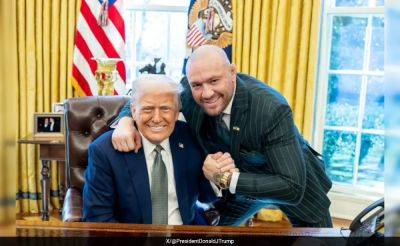How Germany's car industry is bracing for Donald Trump's tariffs
US President Donald Trump on Tuesday sparked a tariff war with the US’ three largest trading partners, slapping 25% tariffs on Canada and Mexico, and doubling an already imposed import tariff on China to 20%.
On Thursday, he backtracked and postponed the tariffs on multiple imports from Mexico and some from Canada, but emphasised he would impose additional tariffs at the start of April.
The prospect of an international trade war sparked by Trump's tariffs comes at a bad time for the German economy, which shrunk for the second year in a row in 2024.
Once an economic powerhouse, Germany is projected to be the bloc’s weakest performer in 2025.
Yet experts suggest that the impact of a tariff war between China, Mexico, and Canada would have a limited effect on Germany— at least for the time being — aside from impacting German manufacturers and suppliers in these three countries.
“At least in the medium run, one would expect some trade diversion in the sense that products that were designed to go to the US, for example from China, would now end up on the European markets,” Julian Hinz, Professor of International Economics at Bielefeld University and head of the Research Group Trade Policy at the Kiel Institute for the World Economy, told Euronews.
The US could however also import slightly more from Europe in place of China, Mexico and Canada. “The effects blur the overall picture, abit” Hinz says.
German car companies, including Audi, produce cars in Mexico. According to data from the German Car Association (VDA), German carmakers produced 716,000 cars in the country — primarily for the US market.
If Trump’s tariffs mean German cars produced in Mexico cannot be sold as easily, or are much more expensive now in the US then this








